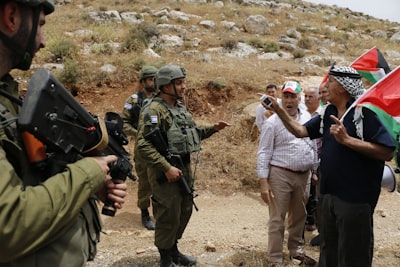Hostage Exchanges in the Israeli-Palestinian Conflict
Introduction
Hostage exchanges have been a recurring and influential feature of the Israeli-Palestinian conflict, representing a key component of negotiations between Israel and Palestinian groups, including Hamas. The practice involves the release of detainees or prisoners by one party in return for the release of hostages held by the other. These exchanges often occur during heightened periods of conflict or as part of ceasefire agreements, and are notable for their humanitarian, political, and strategic implications.
Historical Context
Hostage-taking and prisoner exchanges have featured in Middle Eastern conflicts for decades, with formal and informal agreements dating back to the Arab-Israeli wars. In the Israeli-Palestinian context, large-scale exchanges were first documented in the late 20th century. A prominent example is the 1985 Jibril Agreement, in which Israel released 1,150 Palestinian and other Arab prisoners in exchange for three Israelis held by the Popular Front for the Liberation of Palestine (PFLP-GC).
Role of Hamas
Hamas, a Palestinian Islamist organization governing the Gaza Strip since 2007, has employed hostage-taking as both a tactical and bargaining tool. The group has captured Israeli soldiers and civilians, sometimes holding them for extended periods. Hostage exchanges involving Hamas have drawn intense international attention due to the high-profile nature of captives and the often-lopsided ratios of prisoners exchanged for hostages.
Notable Recent Exchanges
One of the most well-known cases is the 2011 Gilad Shalit exchange, when Israel released over 1,000 Palestinian prisoners in return for one captured Israeli soldier, Gilad Shalit, who had been held by Hamas for over five years. More recent efforts, especially during the Gaza war beginning in October 2023, have focused on negotiating releases of both living hostages and deceased individuals' remains amid intense military operations and civilian casualties.
Humanitarian and Political Dimensions
Hostage exchanges highlight deep humanitarian concerns, as civilians are frequently among those held. The fate of hostages can galvanize public opinion and pressure governments to negotiate. Politically, such exchanges may signal shifts in conflict dynamics or serve as confidence-building measures during peace talks. However, they can also face criticism for incentivizing future abductions or undermining the rule of law.
International Mediation and Legal Aspects
Exchanges often involve third-party mediation, with countries such as Egypt, Qatar, and the United States playing roles in facilitating dialogue. International organizations, including the United Nations and the International Committee of the Red Cross (ICRC), may monitor compliance or aid in logistical arrangements. Legally, hostage-taking is prohibited under international humanitarian law, but practical solutions are often sought to preserve life and ease humanitarian crises.
Contemporary Relevance
As of 2024, hostage exchanges remain central to efforts to de-escalate violence in the Israeli-Palestinian conflict, especially during ceasefire negotiations and humanitarian interventions. The issue continues to provoke debate within both Israeli and Palestinian societies and among the international community over the ethics and long-term consequences of such agreements.
Conclusion
Hostage exchanges are a complex and recurring element of the Israeli-Palestinian conflict, intertwining humanitarian, political, and legal considerations. They remain a crucial mechanism for facilitating negotiations, releasing captives, and in some cases, advancing towards broader peace agreements, albeit amid ongoing controversy and contention.

Comments
No comments yet. Be the first to comment!